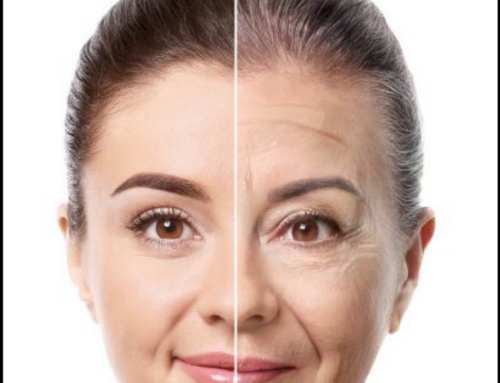Why is it helpful to restrict carbs when doing cryoslimming treatments?
Cryoslimming is a noninvasive body contouring treatment that uses freezing temperatures to target and eliminates fat cells in specific areas of the body. The treatment works by applying a cold temperature to the targeted area, which triggers the breakdown and destruction of fat cells through a process called apoptosis. The destroyed fat cells are then eliminated by the body’s natural metabolic processes over time.
While restricting carbohydrates is not necessarily a requirement for cryoslimming treatments, it is recommended by Happy Valley Healthy Beauty for cryoslimming treatments for a few reasons.
Firstly, carbohydrates are a primary source of energy for the body. When we consume excess carbohydrates, our body stores the excess as glycogen, which is then stored in the liver and muscles for later use. However, when our glycogen stores are full, any excess carbohydrates are converted into fat and stored in adipose tissue. By limiting carbohydrate intake, the body is forced to rely on stored fat as an energy source, which can enhance the effectiveness of cryoslimming treatments.
Secondly, consuming excess carbohydrates can lead to inflammation in the body, which can impede the body’s natural healing and metabolic processes. Cryoslimming treatments rely on the body’s natural healing processes, especially the lymphatic system, to eliminate the destroyed fat cells, so reducing inflammation by limiting carbohydrate intake can aid in the body’s ability to heal and eliminate the targeted fat cells.
How does the lymphatic system help get rid of dead cells?
The lymphatic system is a network of vessels and organs in the body that helps to maintain fluid balance and immune function. One of the functions of the lymphatic system is to help remove cellular waste and dead cells from the body.
When cells die, they release their contents into the surrounding tissue. This can include cellular debris, toxins, and other waste products. The lymphatic system helps to remove these waste products by collecting them through lymphatic vessels and transporting them to lymph nodes, which act as filters.
The lymph nodes contain specialized immune cells, including lymphocytes and macrophages, that help to identify and eliminate foreign particles and dead cells. The lymphatic fluid, also known as lymph, flows through the lymph nodes where the immune cells remove any waste products or dead cells that may be present.
After the lymph nodes filter out the waste, the lymphatic fluid returns to the bloodstream where it can be processed and eliminated by the body’s natural metabolic processes.
Overall, the lymphatic system plays a crucial role in removing cellular waste and dead cells from the body, which is important for maintaining proper immune function and overall health.
Does eating carbs affect the lymphatic system?
Carbohydrate intake can indirectly affect the lymphatic system through its impact on the body’s fluid balance and immune function.
Carbohydrates are an important source of energy for the body, and they are broken down into glucose, which is used by cells for energy production. When we consume carbohydrates, our body releases insulin, which helps to transport glucose from the bloodstream into cells for energy production.
However, consuming excessive amounts of carbohydrates can lead to fluid retention in the body. When we eat more carbohydrates than we need for energy production, the excess glucose is stored in the liver and muscles as glycogen. Glycogen storage is associated with an increase in water retention in the body, which can lead to swelling and edema. This can put additional pressure on the lymphatic system, which can make it more difficult for the lymphatic vessels to drain fluids and waste products from the body’s tissues.
Additionally, consuming excessive amounts of carbohydrates, particularly those that are refined or high in sugar, can lead to inflammation in the body. Chronic inflammation can impair immune function, which can impact the lymphatic system’s ability to effectively remove waste products and toxins from the body.
Reducing Carbs Can Lead to Weight Loss
Cryoslimming treatments permanently kill fat cells, but fat can always come back. One way to minimize the return of body fat is by eating a diet lower in carbs.
Restricting carbs can help you lose weight or maintain a healthy weight for several reasons:
- Reducing calorie intake: Carbohydrates are a source of calories, and cutting back on them can help reduce your overall calorie intake. When you consume fewer calories than your body needs, it starts to use stored fat as a source of energy, leading to weight loss.
- Decreasing insulin levels: Carbohydrates are broken down into glucose, which triggers the release of insulin, a hormone that helps regulate blood sugar levels. However, high levels of insulin can also promote fat storage. By reducing your carb intake, you can lower your insulin levels, which can help your body burn stored fat for energy.
- Reducing water weight: Carbohydrates are stored in your body as glycogen, which binds to water. When you restrict carbs, your body uses up its glycogen stores, leading to a loss of water weight. This can result in a quick drop in the number on the scale, but it’s important to note that this weight loss is temporary and not indicative of actual fat loss.
It’s important to note that severely restricting carbohydrates should be done under the guidance of a healthcare professional, as excessive restriction can have negative health consequences. At Happy Valley Healthy Beauty, we simply recommend no carbs for two hours before and after treatment, and if possible five hours, a mild form of carb restriction. Additionally, we recommend a balanced and healthy diet, along with regular exercise, because both are crucial for overall health and maintaining the results of cryoslimming treatments.







Leave A Comment